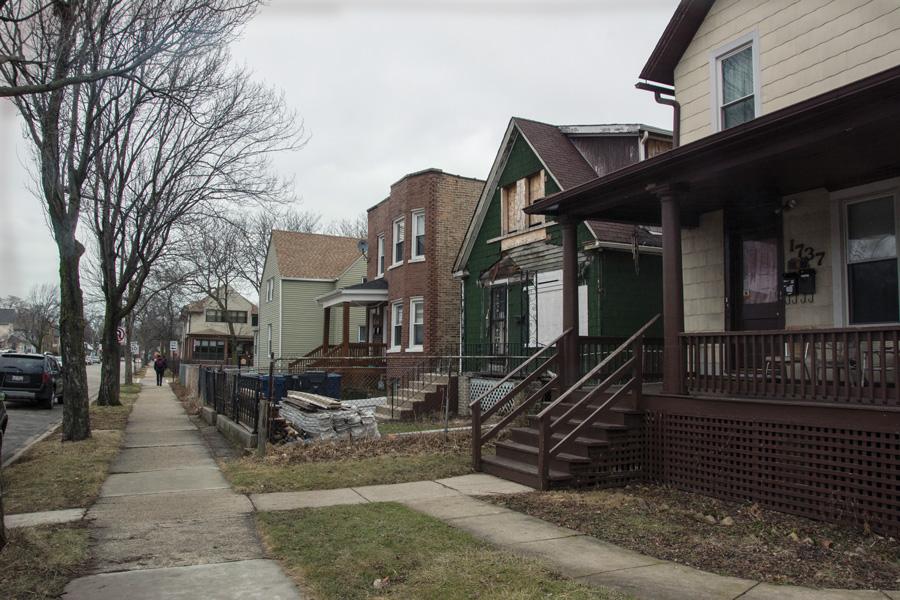Housing and Community Development Committee considers landlord-tenant ordinance updates
Leeks Lim/The Daily Northwestern
The Housing and Community Development Committee discussed several proposals to update its Residential Landlord Tenant Ordinance on Tuesday.
May 17, 2023
The Housing and Community Development Committee discussed several proposed updates to Evanston’s Residential Landlord Tenant Ordinance on Tuesday.
The proposed updates include requirements to clarify up-front costs for rentals — such as application fees, move-in fees and security deposits — disclose utility costs and provide tenants with the first right of refusal, which means the tenant will receive the first offer for their unit if the landlord decides to sell.
The committee makes recommendations for ordinances to the City Council’s Planning and Development Committee and to the full council.
Cook County’s new Residential Landlord Tenant Ordinance went into effect in June 2021. Although Evanston has its own RLTO, exempting it from county regulations, the city began working with several fair housing organizations to consider updating its own ordinance after Cook County’s passed.
Ald. Devon Reid (8th), who sits on the Housing and Community Development Committee, said he thinks Evanston should follow most of the county’s ordinance because some rental providers operate across municipalities.
“We may have some slight things that are unique to Evanston,” Reid said. “But for the most part, unless there’s something that directly conflicts with the language of our ordinance, we’re going to follow the county.”
Community Development Director Sarah Flax said she agrees. She said city staff looked at Cook County and Chicago ordinances and drew from “the best of them.”
Lindsey Wade, the city’s housing and economic development analyst, presented on the proposed updates to Evanston’s RLTO.
She said 43% of Evanston residents live in rental units. The city has seen upward trends in average rent and the number of evictions in 2022, and high housing costs also disproportionately affect Black and Latine households, she added.
Wade said Evanston conducted “robust outreach” to gather feedback from community members regarding the proposed updates. The city conducted an online survey with registered landlords and worked with Evanston-based fair housing organization Open Communities to learn tenants’ perspectives.
The committee then discussed several proposals, including one to develop tools that encourage landlords to conduct individualized screenings of tenants rather than depending on the rent-to-income ratio or credit score. Wade said research has shown that those common criteria do not accurately reflect a tenant’s ability to pay rent.
Ald. Bobby Burns (5th) agreed. Considering the low rental vacancy rate in Evanston, Burns said landlords can currently “sit back” and reject tenants solely based on their credit score.
Committee Member Hugo Rodriguez said he agrees with the need to have more comprehensive individualized assessments. However, he also said metrics like rent-to-income ratio and credit score can be useful for landlords.
A landlord and real estate broker himself, Rodriguez said landlords should keep economic factors in mind when renting to tenants. If a tenant is paying a large amount of their income for housing, the lease might not be sustainable long-term.
The committee also discussed the issue of late fees. Evanston currently does not regulate the amount of fees landlords can charge tenants if they are late for rent. Wade said city staff is now recommending a monthly fee structure that would be proportional to rent.
Dominic Voz, a fair housing associate at Open Communities, said late fees statistically fail to incentivize rent payment and also hurt the tenants.
“Most people who are not paying rent are not paying rent because they cannot,” Voz said. “So overburdening that person with more debt is not solving anybody’s problems.”
Reid said he supports a progressive fee structure currently in place in New York City and Colorado, which sets a limit of $50 or 5% of the rent, whichever is lower. That model would push Evanston in line with Cook County and Chicago and would not require complex calculations, he added.
Several residents, including both landlords and tenants, spoke at public comment regarding the proposed updates.
Evanston landlord Jim Mckee said he hopes the committee will consider unintended consequences of the changes to the RLTO. He objects to the proposed just-cause eviction, which would require landlords to show a valid reason, like a lease violation or major renovations to the unit, to evict tenants or not renew their leases.
He said the ordinance will take away a major tool landlords use to negotiate with tenants.
“I think that’s a huge overreach which will change totally the way I operate and do business,” Mckee said.
The committee will resume discussion of the other proposed RLTO updates, including the just-cause eviction ordinance and a fair notice ordinance — which will raise the time requirement on lease non-renewal notices based on how long the tenant has lived in their unit — in its June 20 meeting.
Email: [email protected]
Twitter: @caseeey_he
Related Stories:
— City Council approves financial assistance for small and medium rental providers
— Here’s what changes to Evanston’s Fair Housing Ordinance could mean
— Despite city, community response, eviction threat persists












